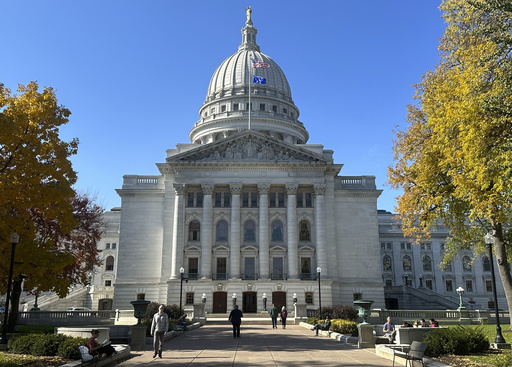
The Wisconsin Supreme Court is set to consider a crucial case concerning the legality of a Republican-led legislative committee’s decision to reject a proposed state regulation aimed at outlawing “conversion therapy” for LGBTQ+ individuals. This hearing will take place on Thursday and is a pivotal moment amidst ongoing national discussions surrounding LGBTQ+ rights. It is also indicative of Democratic Governor Tony Evers’ efforts to limit the influence of the GOP-dominated Legislature, particularly following his vetoes of various Republican initiatives targeting transgender athletes in high schools.
“Conversion therapy” refers to the debunked therapeutic practice that aims to change an individual’s sexual orientation or gender identity to align with heterosexual norms or traditional gender roles. This practice is prohibited in 20 states, as well as in several localities throughout Wisconsin. Since April 2024, the state licensing board responsible for therapists and social workers has categorized conversion therapy as unprofessional conduct. Advocates pushing for a complete ban are focused on preventing mental health professionals from engaging in practices that aim to alter a client’s sexual orientation or gender identity.
Fair Wisconsin, the sole statewide organization dedicated to LGBTQ+ civil rights and political advocacy, has reported instances of conversion therapy being practiced in the state, according to its executive director, Abigail Swetz. However, she notes that comprehensive data on the frequency of these practices remains elusive. Should a ban be implemented, there might be measurable data available concerning licensed therapists, though efforts by religious institutions to execute conversion therapy would likely not be monitored, Swetz explained.
In terms of current legislative actions within Wisconsin, the proposed ban on conversion therapy has been blocked twice by the Joint Committee for the Review of Administrative Rules, a committee dominated by Republicans with the authority to review state regulations. The case before the Wisconsin Supreme Court will assess whether the ban can move forward, while also examining if the legislative committee has overextended its powers in obstructing various state regulatory measures during the tenure of Governor Evers.
The legal challenge instituted by Governor Evers focuses on two specific votes made by the Joint Committee: one that involves the “conversion therapy” ban from the Department of Safety and Professional Services, and another that has delayed updates to the state’s commercial building codes. Republicans defending the committee’s actions argue that their focus is not on the policy of conversion therapy itself, but rather on the authority of the licensing board to implement such actions.
Evers has worked since 2020 to establish the ban, but the Legislature has consistently blocked its enactment. Swetz has emphasized the critical nature of this issue, asserting that the ban is vital for protecting young people from potentially harmful practices.
The implications of the proposed conversion therapy ban extend beyond this specific issue, as the legislative committee has also stalled other regulations relating to public health, environmental issues, and vaccination mandates. Evers’ lawsuit contends that the committee’s actions constitute an unconstitutional form of “legislative veto,” undermining the legitimate authority of state agencies.
Earlier in July, the court sided with Evers on a related matter, determining that another legislative committee had unlawfully restricted the Department of Natural Resources from utilizing funds allocated for land stewardship. This separate regulatory issue will be examined in the same hearing.
On the other side, the Legislature argues that a ruling unfavorable to them could disrupt established practices. They cite a 1992 Wisconsin Supreme Court decision that upheld their ability to suspend state agency regulations. Evers challenges this ruling, positing that the legislative committee’s actions overstep what the state constitution permits the governor to execute in executing laws.
He asserts that the prolonged and intricate state regulatory process has become a site of significant contention and numerous legal disputes over the years. Evers urges the court to abandon this “failed constitutional experiment,” seeking a return to the constitutional framework as originally intended.
The Supreme Court, comprising a slight majority of liberal justices, will hear arguments from both parties on Thursday, with a formal ruling expected in the months to follow.

